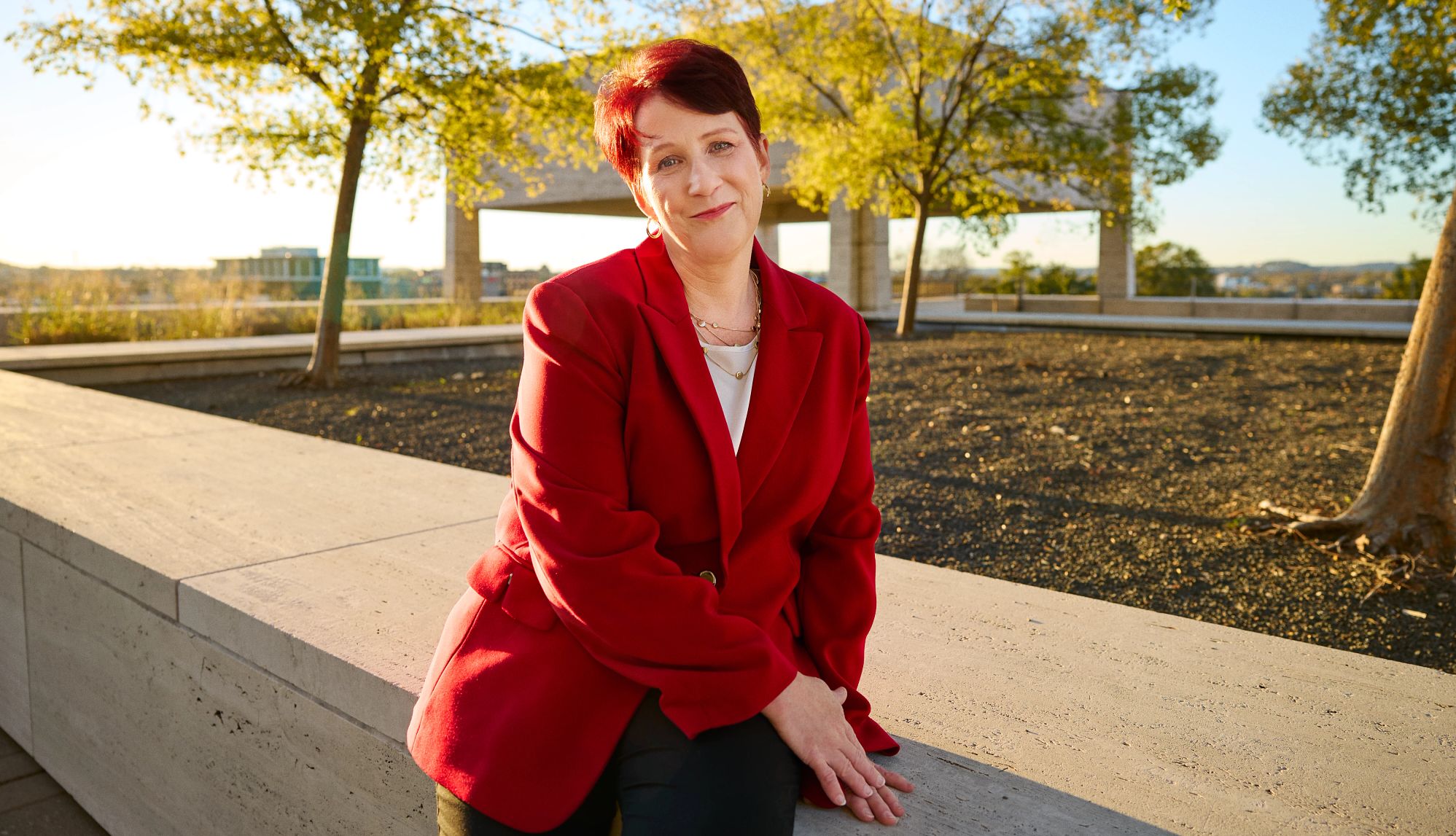
Meet the Unsung Nursing Home Hero — the Longterm Care Ombudsman
- Select a language for the TTS:
- UK English Female
- UK English Male
- US English Female
- US English Male
- Australian Female
- Australian Male
- Language selected: (auto detect) - EN
Play all audios:
"Every time I feel like I just can't do it anymore, I'll have a resident say, 'You are my guardian angel," says Melinda Lunday, one of more than 1,500 long-term care ombudsmen across the
country. Diana King Facebook Twitter LinkedIn
At a nursing home northeast of Nashville, across from a cornfield in a rural stretch of middle Tennessee, Melinda Lunday walks by a resident’s room. A man in a wheelchair at the doorway is
watching television as he struggles with a heavy cough. In a raspy voice, he tells her he needs more medical help and is ready to throw punches over the matter.
“I quit telling my nurse anything. It doesn’t do no good,” he says, spitting into a trash can. He taps his hand to his chest. “It feels just like a sharp knife. Right here, I’m hurting right
here,” he says.
“You don’t need to pop your fist off at anybody,” responds Lunday. “Let me go see what I can do to get you some help.”
With his permission, Lunday shares his complaint with the home’s administrator. By the time she leaves, the man is approved to resume his medications.
This is the third long-term care facility Lunday has visited today. She has two more to go.
Lunday is one of more than 1,500 long-term care ombudsmen across the country; their paid work is supported by a network of nearly 3,500 volunteers. Under a federal program established in the
1970s, ombudsmen advocate on behalf of older residents and those with disabilities living in nursing homes, assisted living facilities and other residential care homes. As resident
advocates, they seek to ensure residents’ rights are protected and that quality care is provided.
‘There are far too few of us’Ombudsmen respond when call lights are ignored, when medications are given incorrectly, when pressure ulcers form from not enough movement, when toenails go untrimmed, when teeth go
unbrushed and when soiled briefs are left unchanged. They provide information on available supports and services, answer questions, and investigate and resolve complaints. When a nursing
home shuts down, ombudsmen help ensure that residents have another place to live. When a facility threatens to eject a resident, they help the person find a way to stay or suggest
alternative arrangements.
Yet the valuable services that ombudsmen perform are increasingly hard to provide. One reason: Partly because of COVID restrictions and concerns, the pool of volunteers who can serve as
representatives supervised by paid ombudsmen such as Lunday has shrunk by 40 percent over the past five years. “There are far too few of us in Tennessee and across the country to do really
excellent work,” says Teresa Teeple, Tennessee’s state ombudsman.
Meanwhile, the number of complaints lodged with ombudsmen about long-term care have been climbing rapidly over the past few years, returning to pre-COVID levels of more than 202,000 in 2023.
Speaking about Tennessee, Teeple says, “Almost, in every single case, regardless of how we code it, there is an element of there being too few staff or staff not trained well enough to
provide care to residents in the way that they need it.”
Better oversight would require more money. Annual federal funding for the nationwide ombudsman program was $22 million in 2023 and 2024, and some states have temporarily bolstered staff with
COVID-related funding sources. But funding falls below recommended ombudsmen-per-bed ratios in nearly half of the states, according to data provided by the National Association of State
Long-Term Care Ombudsman Programs (NASOP).